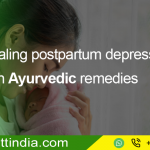Ayurveda is the traditional system of medicine that has been originated in India, dated 3000 years back. The term “Ayurveda” is derived from the Sanskrit words “Ayur” depicting the life and “Veda” meaning science or knowledge.
The classic Ayurveda depicted as Charaka Samhita unfolds epidemic management for boosting immunity as the ability to prevent and arrest the progression of the disease for maintaining homeostasis. The Ayurveda plays a larger emphasis on the mind’s strength building and body to cope with various stressors that include the infection. In similar mode to innate and acquired immunity, the Ayurveda boosts up immunity referring to Bala (strength) as classified as natural (Sahaja), chronobiologic (Kalaja), and acquired (Yuktikrut).
Ayurveda includes several modalities of treatment to enhance immunity against respiratory illnesses that include immunomodulators (known as Rasayana), local and systemic interventions. Local prophylaxis incorporates herbal decoctions, hot water consumptions, gargling with medicated water and steam inhalation as inscribed on Ayurveda for respiratory illnesses.
This kind of interventions quickly implement on a large scale with the benefits of simplicity, affordability, and acceptability. It is evident for traditional measures to positively influence mental health and immune function by modulating psychoneuroimmune pathways. Currently, there are certain allopathic drugs investigated for prophylactic use against COVID-19. But the current prophylactic measures remain inadequate. The prophylactic use with therapeutic potential of traditional and complementary medicine systems renders Ayurveda and Yoga to be the proven effective prophylaxis and adjuvant therapy for COVID-19.
In the South Indian state of Kerala, COVID-19 had successfully been flatten the curve by the use of Ayurvedic remedies in mitigating the spread of COVID-19 in the suspected individuals








